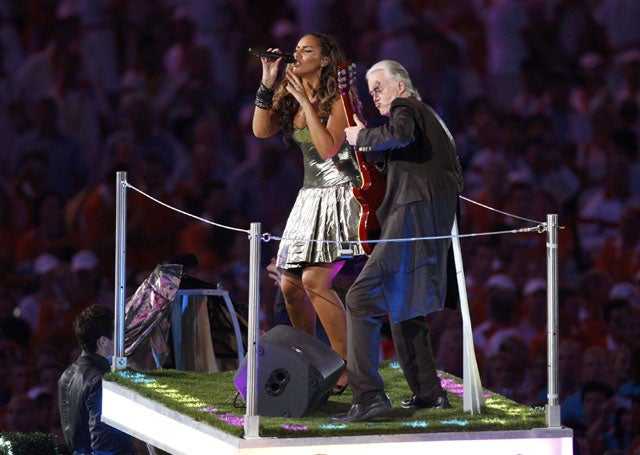The Week In Radio: How do you sum up a national identity?

On Monday, the Today programme tackled the question of Britishness, with reference to the London portion of the Olympics closing ceremony, in which the nation was represented by a double-decker, dancers waving umbrellas and "Greensleeves" set to a disco beat. Today's discussion didn't clear up the evident confusion – indeed, by handing the question over to a journalist from the Daily Telegraph and the cockney comedian Arthur Smith, I'd say they deepened it; but where do we go for symbols of national identity?
Can music, for instance, sum up a nation? In Valiant for Truth (Radio 3, Sunday), part of a slew of features marking the 50th anniversary of the death of Ralph Vaughan Williams, the composer was heard quoting Virginia Woolf, in A Room of One's Own: "Masterpieces are not single and solitary births; they are the outcome of many years of thinking in common, of thinking by the body of the people, so that the experience of the mass is behind the single voice." And he himself has often been held up as the single voice of Englishness – not Britishness – as having some fundamental connection with the bones and heart of the nation – an idea Stephen Johnson reinforced in this engaging, slightly untidy feature by using the landscapes of Britain as his organising principle. In the same spirit, apparently, Donald Macleod asked, after Vaughan Williams' song "Linden Lea" in Monday's edition of Composer of the Week, "Could there be music more English than that?"
That turned out to be a trick question. Macleod told how the young Ralph once spent a sleepless night after hearing Die Walküre conducted by Mahler; the feature in the interval of Tuesday night's Prom, about RVW's association with the Royal College of Music, included a teacher's criticism of an early piece as a jumble of Berlioz, Brahms and Wagner; and one of the turning-points in his career came when he took composition lessons from Ravel (could there be music more French?). As Johnson pointed out, the Pastoral Symphony, easy to swallow as a portrait of English countryside, was inspired by the composer's wartime experience as a stretcher-bearer on the western front. And Vaughan Williams' own ideas of Englishness weren't orthodox: The Essay (Radio 3, Monday) was an archive recording of him talking about Bach, a lovely tirade against confused notions of "authenticity" in musical performance, in which he casually reversed received wisdom with the assertion, "We English are not literary or artistic, but we are musical."
Actually, what we English are is wordy: hence Fry's English Delight (Radio 4, Monday), a kind of Word of Mouth Xtreem, in which the quirks of the language are examined by many English people's favourite symbol of national identity, Stephen Fry. The first programme, on metaphor, started with the claim that English is particularly rich in nautical metaphors – backed up in Composer of the Week when Donald Macleod, describing difficulties with the libretto of the opera Hugh the Drover, explained that it needed "a firm hand on the tiller" to steer it "on a sound course". But that discussion rapidly degenerated into irritating whimsy about the phrase "Freeze the balls off a brass monkey"; and whimsy was never too far away, which was a pity, because some of the discussion of the way metaphor is transformed into banal language was gripping. When you know that "to thrill" once meant "to pierce", that "sarcasm" once mean "tearing flesh", the words gain a new vividness. Then again, vividness – how very unEnglish.
Join our commenting forum
Join thought-provoking conversations, follow other Independent readers and see their replies
Comments
Bookmark popover
Removed from bookmarks